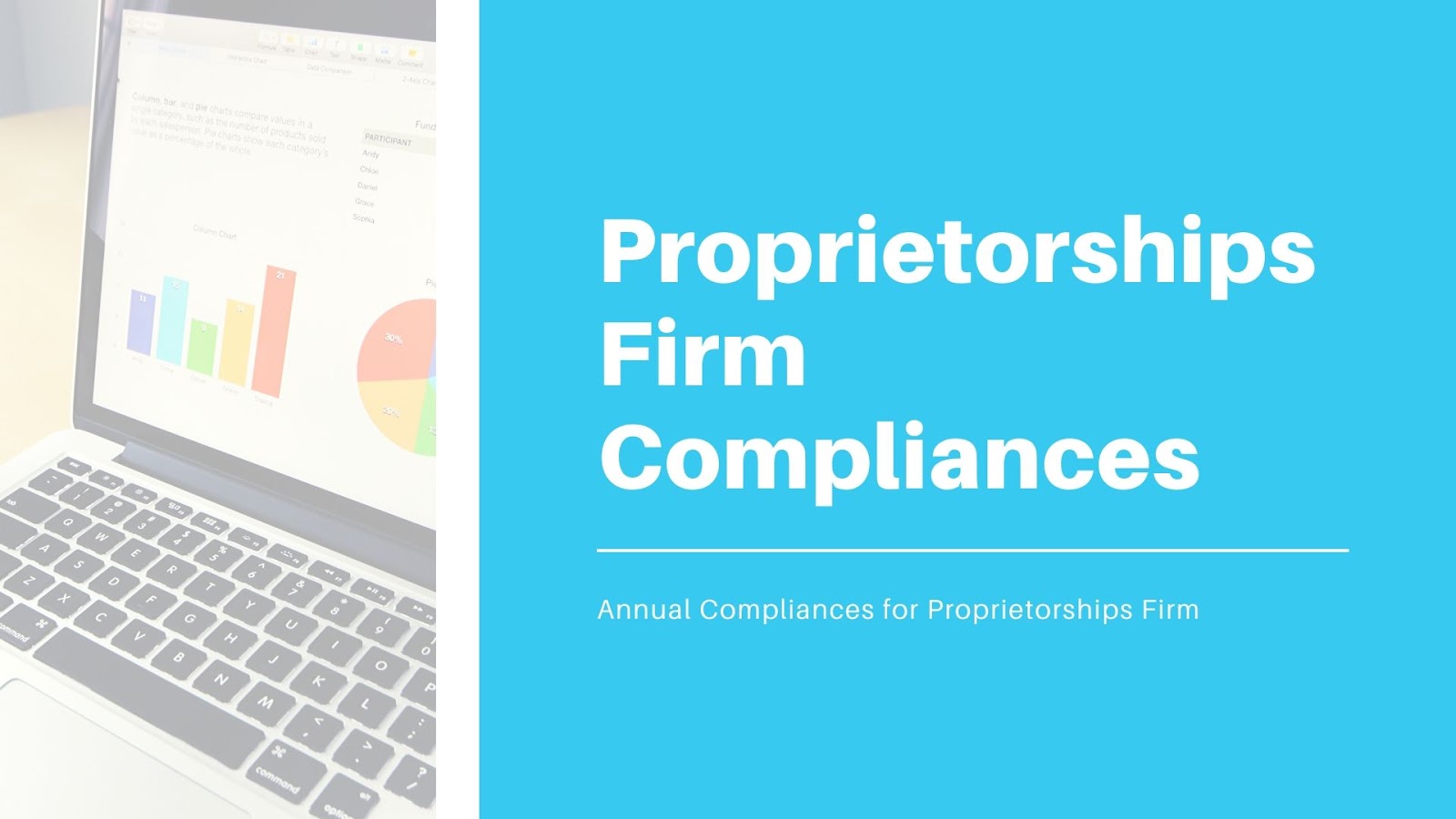Registration Process of Sole Proprietorship Firm in India
Sole Proprietorship Firms are one of the most ordinarily observed business types in India. With the process of Proprietorship Firm Registration India that defines the literal meaning of the word simple, it is no wonder that entrepreneurs are choosing to pick proprietorship as their choice of business type when they are starting on their own.
Sole Proprietor Firm Registration India is single-person firm registration. Its main objective is to open a current bank account on the name of the business so it's simply a firm that is enabled to carry on with their business in India with fewer compliances involved and less costing too. A sole proprietorship firm may require a minimum of two legal entity proofs for the purpose of opening a current bank account.
Documentation Required for a Sole Proprietorship Firm Registration:
● PAN Card copy of a proprietary● Electricity or water bills of the business place
● A photostat copy of an Aadhar card or a Voter identity card
Merits that a Sole Proprietorship Firm Enjoys:
● Easy to form - proprietorship business needs no registration. Therefore, it is one of the easiest ways of starting with no actual formalities. However, after starting up, it is relatively harder to open a bank account or attain a payment portal in the name of the business, since more registrations may be needed.● Business name - since the name of the proprietorship is not registered, it can choose to have any name, as long as it doesn't encroach on an enrolled trademark. Be that as it may, since the name of the firm is not registered, any other person can also use the same business name unless trademark registration is attained.
● Taxation - a proprietorship with less than INR 2 lacs of income is not required to pay any income tax, as sole proprietorships are taxed as the individual owing the business. However, once the income of the business exceeds INR 10 lacs on an annual basis, there are no major advantages for a Proprietorship Firm with respect to taxation that it will continue to enjoy.
A proprietorship can be commenced with any amount of capital. There is no demarcation line of maintaining a minimum amount.
The owner must be an Indian resident and a Citizen of India. Non-Resident Indians and Persons of Indian sources can just put resources into a proprietorship with conforming to earlier consent of the Government of India.
Proprietorship firms do not have a Certificate of Incorporation (COI).
A business operated by a proprietorship firm cannot be transferred to another person, unlike a Limited Liability Proprietorship or a Private Limited Company. Only the assets in the proprietorship can be transferred to another person through the sale. Intangible assets such as Government approvals, registrations, etc. cannot be transferred to another individual.
Proprietorship firms are business entities that are owned, managed and controlled by one person only. So proprietorship firms cannot allot shares or have investors.
A Proprietorship Firm can possess only one promoter in his proprietary firm. The firm will not have a separate legal entity natheless the PAN Card is the same as that of the proprietor and the proprietary firm.




Comments
Post a Comment